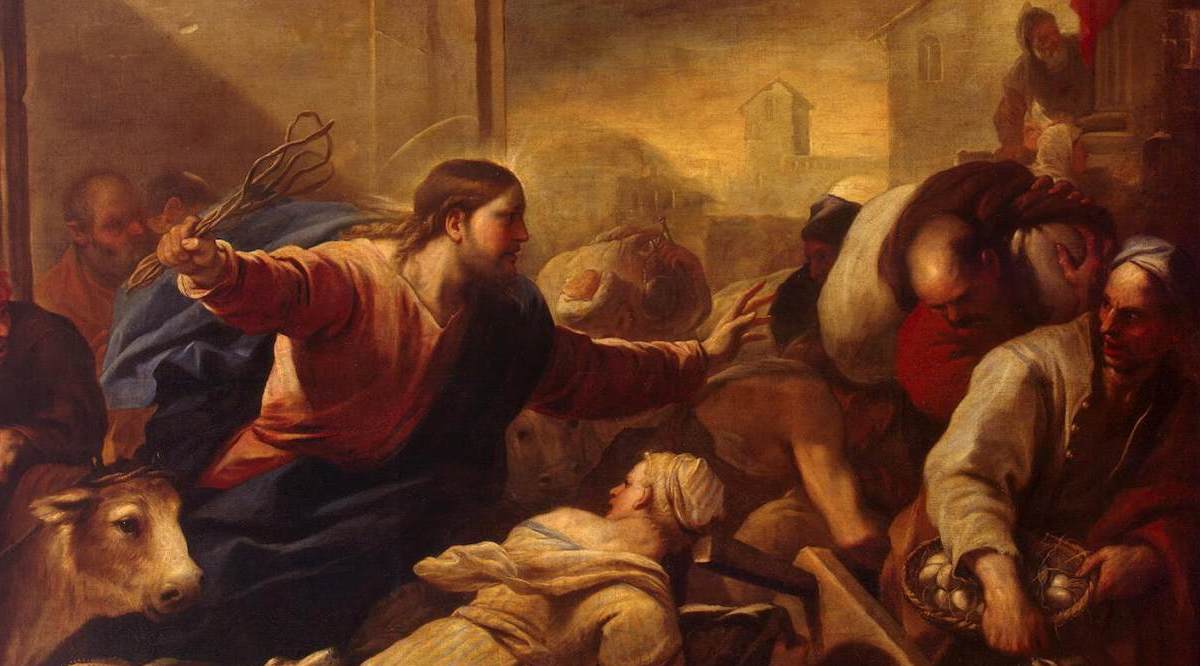It was announced recently that Mel Gibson will begin filming the sequel to The Passion of Christ later this year. What might the title be? Resurrection? That seems like a likely or even obvious possibility. But I’d like to propose an alternative title to Mel: The Revenge of Christ. It has a nice ring to it.
What would it mean to speak of Christ’s vengeance? In our modern parlance, we often think of vengeance in a negative light, perhaps associated with someone blowing his stack or committing unfettered violence against an enemy. But the reality is that vengeance is not always bad. We can see this in Scripture itself, as Saint Luke records Christ asking, “Will not God revenge his elect who cry to him day and night?” (Luke 18:7). It would seem that revenge and vengeance can even be holy!
So what is vengeance? Thankfully, we don’t have to go far to find an answer, for St. Thomas Aquinas takes up this very question in the Summa Theologiae. He explains that vengeance is when some kind of penalty is levied against a person who has sinned. On the part of the person who takes revenge, he assesses that there has been some kind of injustice that has taken place.
When someone does something evil, there are two natural responses to the one who has suffered an injustice (ST II-II, q. 108). In one way, the victim hopes that the perpetrator gets what’s coming to him. They hope for an evil to befall them just so that they get a little taste of their own medicine. This is not the kind of vengeance we’re after. This is forbidden, even though it might be the kind of revenge we observe most often. It is inexcusable.
On the other hand, vengeance can be virtuous when it punishes a sin that a perpetrator commits so that he never does it again. In other words, revenge ought to correct someone for the wrong he did. The point isn’t to make the other person feel bad but to prevent a future evil from taking place. Sin is evil and harmful to the human condition, and even though it doesn’t always incur an eternal punishment, it does always harm the mystical body of Christ. Every sin we commit hurts ourselves and our neighbor and turns us, little by little, away from God. Sometimes our offenses are so egregious that we need a wake up call, something to help us see the true gravity of our sins.
So what might the revenge of Christ be like? Perhaps it’ll be the Messiah who destroys the enemies of God: “Do good, Lord, to the good, to those who are upright of heart. But those who turn aside to crooked ways may the Lord send down with the evildoers” (Ps 125:4–5).
But I think our “Lord of Revenge” would be more like the “Lord of Merciful Vengeance.”
It is true that God has every right to treat us with strict justice. But thank God we have a Savior who offers us correction so that we might grow in virtue despite our misgivings. He corrects and punishes us, not for the sake of the pain, but for the sake of our salvation. And that’s the key: What might seem like God’s revenge is really his mercy as he draws us to himself—at times painfully, but ever closer to his heart.
So, Mel, I’m not sure exactly what the sequel to The Passion of the Christ should be called—The Revenge of Christ, or The Mercy of Christ? How about The Love of Christ? You are telling the greatest love story ever told, after all.
✠
Image: Luca Giordano, Expulsion of the Moneychangers from the Temple







